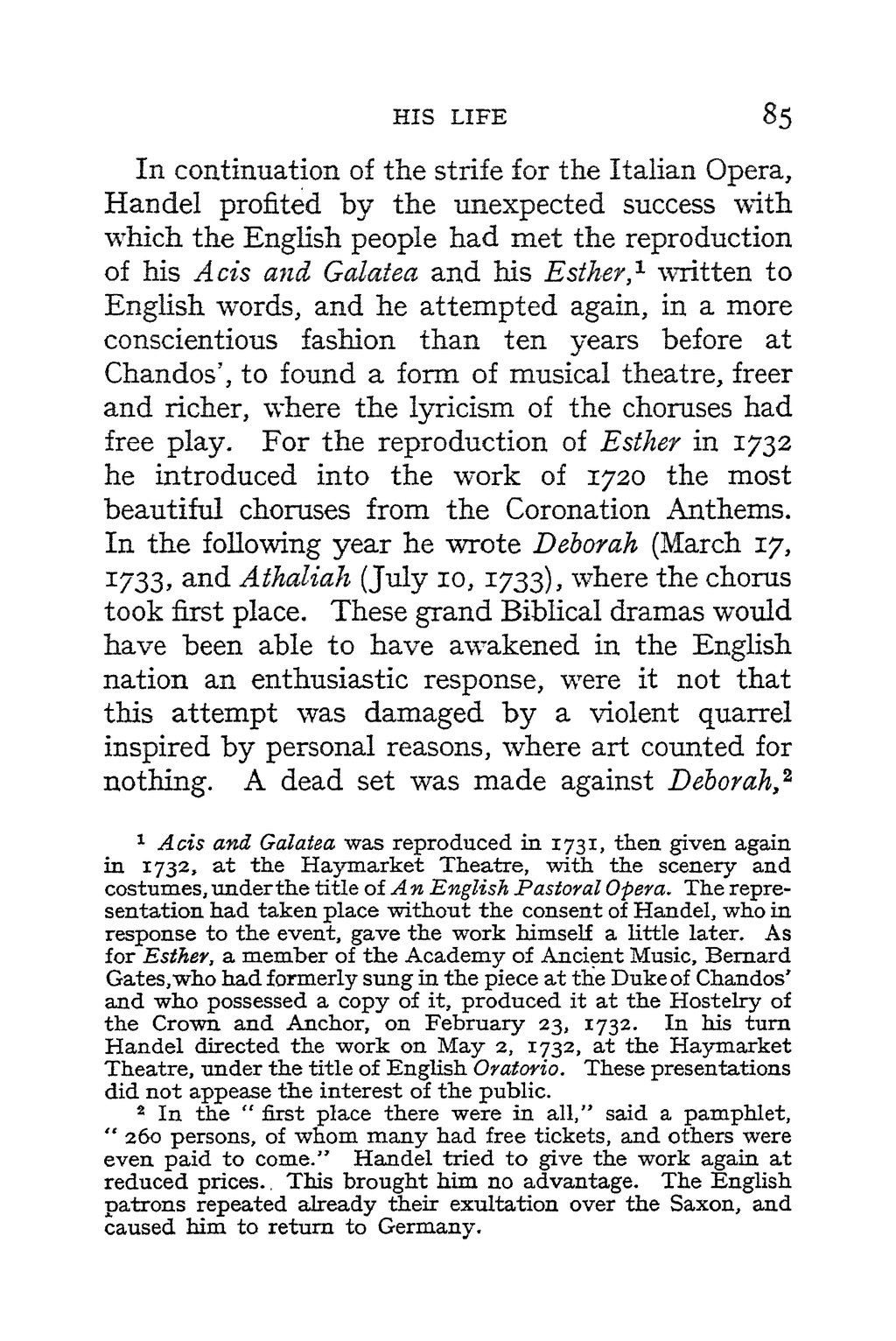In continuation of the strife for the Italian Opera, Handel profited by the unexpected success with which the English people had met the reproduction of his Acis and Galatea and his Esther,[1] written to English words, and he attempted again, in a more conscientious fashion than ten years before at Chandos', to found a form of musical theatre, freer and richer, where the lyricism of the choruses had free play. For the reproduction of Esther in 1732 he introduced into the work of 1720 the most beautiful choruses from the Coronation Anthems. In the following year he wrote Deborah (March 17, 1733), and Athaliah (July 10, 1733), where the chorus took first place. These grand Biblical dramas would have been able to have awakened in the English nation an enthusiastic response, were it not that this attempt was damaged by a violent quarrel inspired by personal reasons, where art counted for nothing. A dead set was made against Deborah,[2]
- ↑ Acis and Galatea was reproduced in 1731, then given again in 1732, at the Haymarket Theatre, with the scenery and costumes, under the title of An English Pastoral Opera. The representation had taken place without the consent of Handel, who in response to the event, gave the work himself a little later. As for Esther, a member of the Academy of Ancient Music, Bernard Gates, who had formerly sung in the piece at the Duke of Chandos' and who possessed a copy of it, produced it at the Hostelry of the Crown and Anchor, on February 23, 1732. In his turn Handel directed the work on May 2, 1732, at the Haymarket Theatre, under the title of English Oratorio. These presentations did not appease the interest of the public.
- ↑ In the "first place there were in all," said a pamphlet, "260 persons, of whom many had free tickets, and others were even paid to come." Handel tried to give the work again at reduced prices. This brought him no advantage. The English patrons repeated already their exultation over the Saxon, and caused him to return to Germany.

